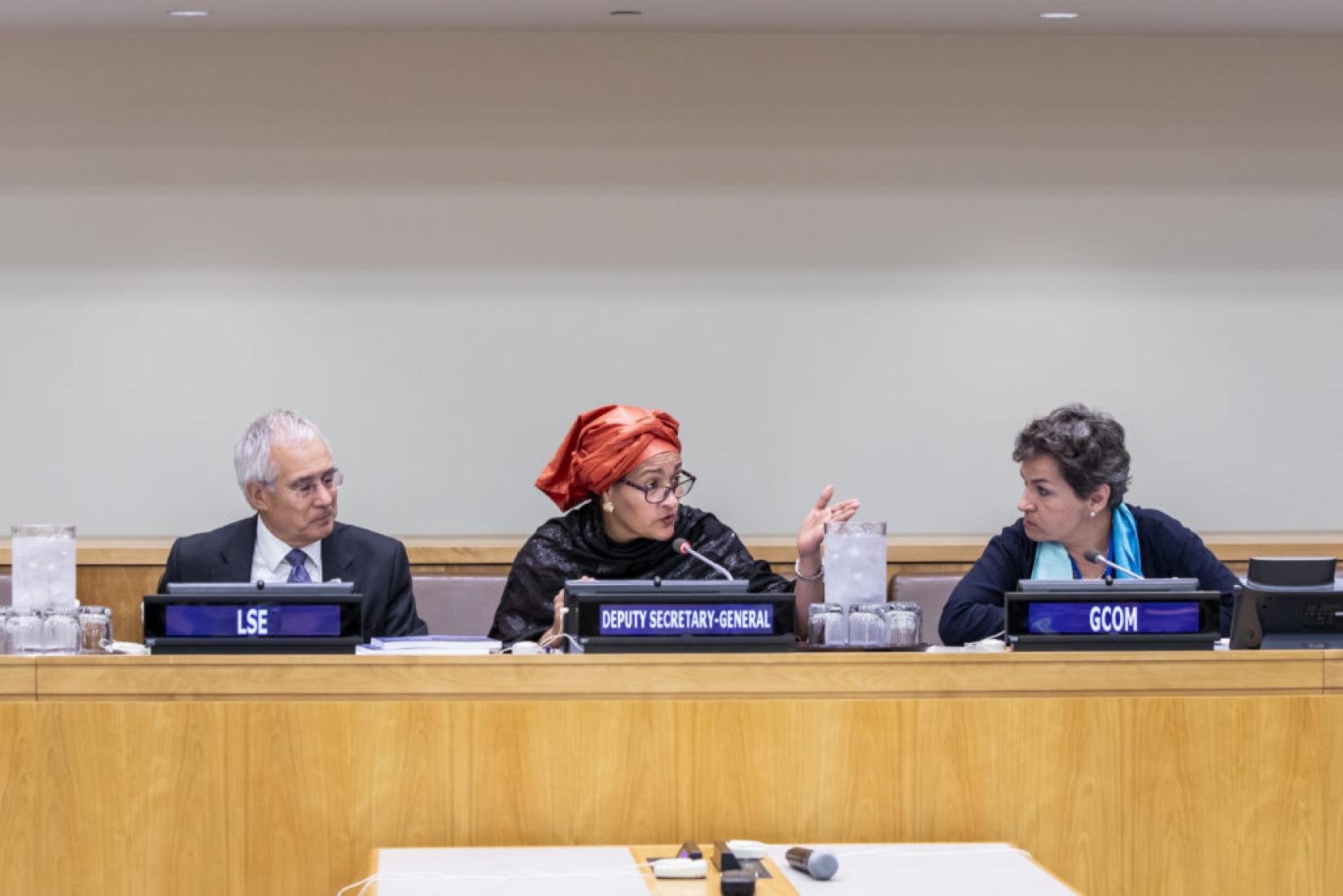UN Deputy Secretary-General Amina Mohammed’s opening remarks, at the “Seizing the Urban Opportunity”
23 September 2019
2019 Climate Action Summit
Following are UN Deputy Secretary-General Amina Mohammed’s opening remarks, at the “Seizing the Urban Opportunity”, in New…

2019 Climate Action Summit
Following are UN Deputy Secretary-General Amina Mohammed’s opening remarks, at the “Seizing the Urban Opportunity”, in New York on 22 September:
I would first like to thank Nick Stern, Christiana Figueres, the Coalition for Urban Transitions and their many partners for co-hosting this event with us, and for this timely report.
This report brings us a new lens through which we must view climate solutions in cities. It tells us that low-emission cities will bring us not only diverse, healthy and livable environments in which to live, but also economic gains.
All of us know how important low-emission and resilient cities are to the climate solution. Accounting for the majority of emissions worldwide, they are the consumers of brown energy.
And, they are the solution makers.
The majority of the world’s people live in cities, an urban population that is rapidly rising. By 2050, the world’s urban population will grow by around 2.5 billion, with almost 90 percent of this growth happening in Asia and Africa.
And, nearly all cities in the world are in precarious positions for climate-related risks – lying on coastal waterways and ports that are facing unprecedented floods and rising seas.
We began a movement for this vital issue at the Secretary-General’s Climate Summit in 2014 and for the Paris Agreement.
It is now fitting that we are back in the UN today issuing a report that calls us to focus on a new lens – the economic case for national governments to unlock climate solutions in urban areas.
The Coalition’s Urban Opportunity Report demonstrates that 90 per cent of emissions from cities can be cut using existing technologies and best practices, while also generating an attractive economic return.
This is a massive opportunity.
You will be hearing more about the economic cases from others today. But I want to give you a few examples and ask you to consider the challenge and opportunity this report demands we consider.
Upgrading existing urban structures can have significant impacts. For example, the city of Quingdao in China intends to retrofit 10 million square meters of residential buildings by 2020 -- which is projected to improve energy efficiency by 40 percent.
On Transport, Lagos has had a bus rapid transit line since 2008, which has not only improved commuting time but also contributes to lowered carbon emissions and particulate matter.
In Nairobi, green buildings are estimated to be an investment opportunity of over 1.1 billion US dollars until 2030.
Cities around Latin America are driving a transport revolution. In Santiago, the host city of COP25, has already put more than 200 electric buses on the streets of Santiago. And Chile is planning to completely electrify the country’s public transport systems by 2040.
But cities must also be a focus for climate resilience -- not just mitigation. The 1 billion people living in slums worldwide are particularly vulnerable to climate impacts -- such as sea level rise, flooding, and landslides. It is our duty to build climate resilient cities.
We must move from brown to green and utilize the opportunities we have to retrofit and build anew, particularly in the areas of the world that are urbanizing the fastest: Africa and Asia.
As the infrastructure and buildings to accommodate these new urban dwellers are built, how can we ensure that, from the onset, they are constructed using the best available technologies?
And, how can we support cities in developing countries to access the financing they will need to chart a new course in urban infrastructure?
Ladies and Gentlemen, The New Urban Agenda, the Paris Agreement, and the 2030 Agenda provide our global framework for action.
But it is on the ground in cities and communities around the world that they come to life and can make a difference.
So I ask all of you to work together to create thriving, climate neutral cities that sit at the heart of prosperous countries.
This is a task for all of us -- national, local, and regional governments, the United Nations, businesses, community-based organizations, research institutions, and our partners. We all have our unique tools to accelerate this transition.
I therefore urge national governments to seize the urban opportunity as they prepare their next round of Nationally Determined Contributions. These NDCs are a chance to support cities in transitioning to a climate neutral future.
I ask local governments to commit to reducing emissions with all means available to them.
And I assure you that the United Nations stands ready to support you in this process.
I hope this report reaches a wide global audience and incites the action and unlocking of financing that we all need to see.
Thank you.

















